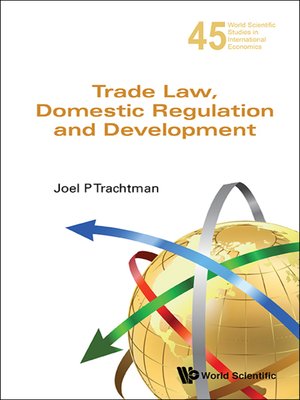Trade Law, Domestic Regulation and Development
ebook ∣ World Scientific Studies In International Economics
By Joel P Trachtman

Sign up to save your library
With an OverDrive account, you can save your favorite libraries for at-a-glance information about availability. Find out more about OverDrive accounts.
Find this title in Libby, the library reading app by OverDrive.



Search for a digital library with this title
Title found at these libraries:
| Library Name | Distance |
|---|---|
| Loading... |
Trade Law, Domestic Regulation and Development is about the relationship between trade, regulation and development. By combining law and economics perspectives on the international trading system, Trachtman takes an interdisciplinary approach in analyzing the topic of globalization and economic development.In a developing economy, as globalization proceeds, a critical factor is the relationship between liberalization of movement of goods, services, and people, on the one hand, and the right to regulate, including the right to regulate for development, on the other hand. In the context of market access, all countries need the right to restrict imports of goods or services that may hurt consumers or the broader society, and developing countries sometimes need the ability to subsidize their own goods and services, or sometimes to restrict imports of goods or services, in order to promote development. Nonetheless, both developed and developing countries often fall into the trap of regulating for protectionist or corrupt reasons. Finding the right balance between market access and regulation is the subject of analysis in this collected volume of 16 papers by Trachtman, and presented in a manner that is accessible and interesting to both law and economics readers. In Trachtman's own words, 'The purpose of [international] trade law in this context [globalization] seems to be to allow states to agree to avoid creating these inefficient policy externalities, not to force all states to dance to the same tune.'







